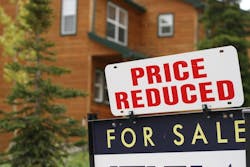Home Value Growth Slows, Potential Decline to Come
With the continued and unprecedented effects COVID-19 has on the housing market, home values have still continued to grow on-pace relative to last year. Even better, the pace is slightly faster than prior months, according to Zillow’s May market report. This steady gain may be an indication of value declines for the remainder of the year as May’s declining numbers have begun a potential future of dropping home values. Homebuyers have not stopped, but these decreases in home value could dry up the pool of those who sought to buy a home prior to the pandemic.
The typical home value in the U.S. was $251,598 in May, up 4.3% year over year — a small acceleration from April’s 4.2% pace of annual growth. But by more recent measures the growth rate has begun to slow: In April, home values grew 0.41% month over month. In May, that slowed to 0.35%, the biggest one-month slowdown since March 2019 and a possible indicator that the market is headed for home value declines in the coming months.
Zillow’s most-recent forecast calls for a 1.8% drop in prices through October 2020 from the highs in February, with a slow price recovery by mid-spring in 2021. The year-over-year change is expected to bottom out at -0.7%.
In 27 of the nation’s 35 largest metro areas, monthly home value growth in May was slower than in April, and in five large markets (San Francisco, San Jose, Pittsburgh, Los Angeles and Sacramento), home values actually fell in May compared to April. Home value growth slowed the most over April in a mix of the most expensive areas (San Francisco, San Jose, Los Angeles and Seattle), formerly fast-growing markets (Phoenix, Columbus and Indianapolis) and metros in states with a relatively high number of COVID-19 cases (Detroit and Pittsburgh).
